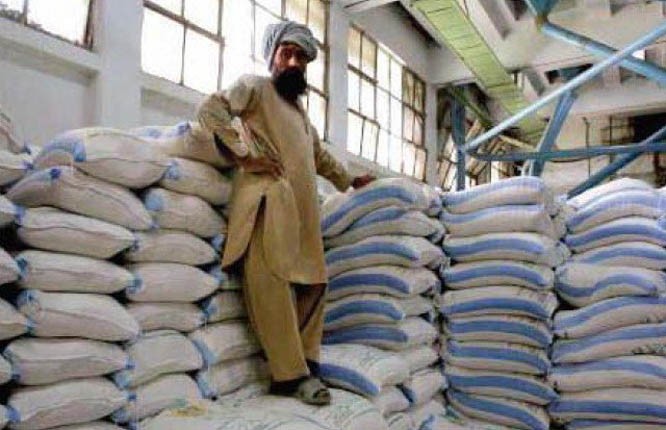
Mill owners in Punjab claim 80 per cent units that were exporting flour to Afghanistan have been shut down due to non-payment of subsidy by the Punjab government

Flour milling industry of Punjab is struggling to survive. It is waiting to receive Rs4 billion subsidy from the government for the last 15 months. According to the officials of Pakistan Flour Mills Association, 80 per cent units in Punjab that were exporting flour to Afghanistan have been shut down due to non-payment of subsidy.
A government notification released on Feb 17, 2015 read: "$120 per ton would be paid to flour mills which export wheat products to Afghanistan as export rebate through State Bank of Pakistan."
This initiative was taken when the Afghan government hinted at banning wheat flour from Pakistan due to its high cost and low quality. At that time, Pakistani flour was being sold at 1,170 Afghani per 49kg in the Kabul market, while a 50kg bag of flour from Kazakhstan was available at 1,150 Afghani.
Afghanistan has been the largest market for Pakistani flour for the last four decades. However, since 2016, other countries, like Kazakhstan, Uzbekistan and Iran, have entered the Afghan market and the demand for Pakistani flour has shrunk.
"The survival of Pakistan flour mills depends on two strategies: export rebate per tonne and release of rebate money in time," says Ansar Javed, Chairman Pakistan Flour Mills Association. "Rebate per tonne is a national issue. We are getting $120 per 40kg, however, wheat exporters get $159 which is blatant discrimination against the flour milling industry."
"Compared with wheat exporters, we invest more money in the finishing process of the product; that is why we demand at least an equivalent export rebate on wheat products," he adds. "Our main concern is the non-payment of rebate money to the flour milling units by the Punjab government due to which our 200 mills have been shut down and more are expected to in the coming days if the government does not pay the dues."
"Unfortunately, the Punjab government’s ineptitude at presenting an export strategy in the last one year has weakened not only flour milling but also labour and wheat growers," says former Chairman Pakistan Flour Mills Association.
"450,000 tonnes of flour was the export target to Afghanistan set by the Punjab government for the fiscal year 2017-18. However, non-reimbursement of export money created immense financial constraints for the industry -- as a result it was able to meet only one third of the target. The tragedy is that the Punjab government did not even release the subsidy against this one third export," says Raza.
Punjab Food Department has been trying to solve this issue. Several meetings were held with the representatives of Flour Mills Association to reach a solution. "We are convinced that $120 rebate per 40kg is appropriate," says former Punjab Food Minister Bilal Yaseen. "However, there are certain hindrances in the release of rebate money from the State Bank of Pakistan, for instance, the exporters have not submitted the required documents with the State Bank."
He adds the Punjab government has released Rs7m to the ones who have followed the set procedure in time.
To get a subsidy, an exporter is supposed to export wheat flour within 30 days of purchasing it. Seven other documents are also required to claim export rebate, like export commercial invoice, verified goods declaration by the custom authorities, form E, copy of L/C for export etc.
"Former provincial food minister had no authority. He was as powerless as other ministers in the previous Punjab cabinet," says Liaqat Ali Khan, Chairman Punjab Flour Mills Association in Multan. "Bilal Yaseen always said that he was unable to take final decision without the consent of Mian Shahbaz Sharif which was enough to tell us about his authority to resolve our issues at the ministry level. He could not even arrange our meeting with Shahbaz Sharif so that we could express our sentiment before him."
"It is indeed disappointing that the Punjab government could do nothing about such a grave issue," says Ansar Javed. He is afraid this ineptitude will bring worse days for the business.